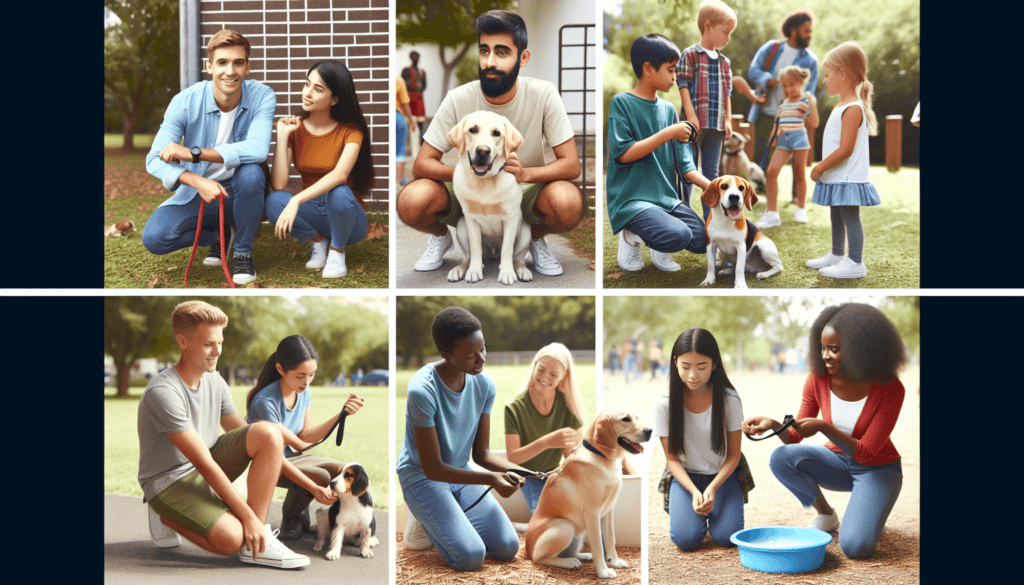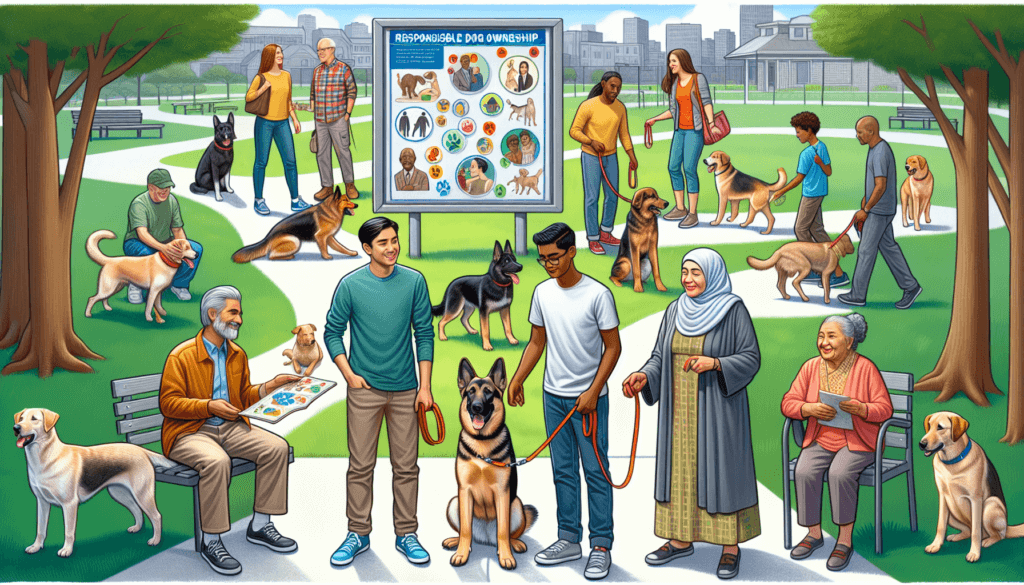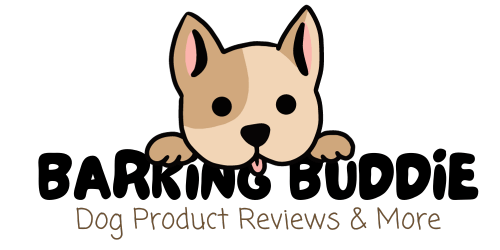In the bustling world of dog communities, it’s important to ensure responsible dog ownership flourishes. But how exactly can we achieve this? This article uncovers the best ways to promote responsible dog ownership within a dog community, offering valuable insights and practical tips that will help maintain a harmonious and happy environment for both dogs and their owners. So, whether you are a seasoned dog enthusiast or a new member of a dog community, this article is your ultimate guide to promoting responsible dog ownership and fostering a loving and respectful community.

Education and Awareness
Workshops on responsible dog ownership
One of the best ways to promote responsible dog ownership in a dog community is through workshops that educate dog owners about their responsibilities. These workshops can cover a wide range of topics, such as basic dog care, understanding dog behavior, and training techniques. By providing dog owners with the knowledge and skills they need to properly care for their pets, we can ensure that dogs in our community are happy, healthy, and well-behaved.
Public awareness campaigns
Public awareness campaigns can play a crucial role in promoting responsible dog ownership. Through these campaigns, we can educate the public about the importance of responsible dog ownership and the impact it has on our community. These campaigns can include advertisements, social media posts, and community events that highlight the benefits of responsible dog ownership. By spreading the message far and wide, we can encourage more people to take their role as a dog owner seriously and prioritize the well-being of their pets.
School programs on dog care and responsibility
Educating children about responsible dog ownership from a young age is essential to creating a future generation of responsible dog owners. By implementing school programs that teach students about dog care and responsibility, we can instill in them a sense of empathy and understanding towards animals. These programs can include classroom lessons, interactive activities, and even visits from trained therapy dogs. By equipping children with the knowledge and skills they need to care for a dog, we can create a more responsible and compassionate dog community.
Regulation and Policies
Enforce leash laws
Enforcing leash laws is crucial to promoting responsible dog ownership and ensuring the safety of both dogs and humans in our community. By requiring dogs to be on a leash in public areas, we can prevent accidents, reduce the risk of dog attacks, and maintain control over a dog’s behavior. Strict enforcement of leash laws can also discourage irresponsible behavior such as letting dogs roam freely or allowing them to approach strangers without permission. By actively enforcing leash laws, we can create a safer and more harmonious dog community.
Implement licensing and registration
Implementing licensing and registration systems can also help promote responsible dog ownership. By requiring dog owners to obtain a license and register their dogs with the local authorities, we can ensure that dogs are properly identified and have up-to-date vaccinations. These systems can also serve as a means to hold dog owners accountable for their pets’ behavior and ensure that they are meeting their responsibilities. By making licensing and registration mandatory, we can promote a sense of accountability and responsibility among dog owners in our community.
Promote spaying and neutering
Promoting spaying and neutering is another important aspect of responsible dog ownership. By encouraging dog owners to have their pets spayed or neutered, we can help control the pet population and reduce the number of stray dogs in our community. Spaying and neutering also have numerous health benefits for dogs, including reducing the risk of certain cancers and behavioral problems. By providing information about the benefits of spaying and neutering and making these procedures more accessible and affordable, we can encourage more dog owners to take this responsible step.
Community Engagement
Organize dog-friendly events and gatherings
Organizing dog-friendly events and gatherings is a great way to bring the dog community together and promote responsible ownership. These events can include dog-friendly festivals, picnics, or even group walks. By creating opportunities for dog owners to socialize and bond with their pets, we can foster a sense of community and encourage responsible dog ownership. Such events also serve as a platform to educate dog owners about the importance of responsible behavior in public spaces, such as cleaning up after their dogs and respecting the rights of others.
Establish community dog parks
Having designated community dog parks is crucial for promoting responsible dog ownership. These parks provide a safe and controlled environment for dogs to socialize and exercise off-leash. By establishing and maintaining well-maintained dog parks, we can encourage dog owners to bring their pets for regular socialization and exercise, reducing the chances of behavioral problems arising from a lack of social interaction. Additionally, these dog parks can serve as a hub for educational programs, such as training classes, behavioral workshops, and responsible ownership seminars.
Encourage responsible dog walking groups
Encouraging the formation of responsible dog walking groups can be a highly effective way to promote responsible dog ownership and create a sense of community. By organizing dog walking groups in various neighborhoods, we can create an environment where dog owners can come together to walk their dogs, exchange information, and share experiences. These groups can also serve as a support system, allowing dog owners to learn from each other, address challenges faced while owning a dog responsibly, and encourage one another to meet their obligations as responsible dog owners.
Resources and Support
Provide accessible veterinary care
Providing accessible veterinary care is crucial for promoting responsible dog ownership. Many dog owners may struggle to afford regular veterinary check-ups or necessary medical treatments for their pets. By offering low-cost or subsidized veterinary services, we can ensure that all dogs in our community have access to essential healthcare. Additionally, providing educational resources on preventive care, such as vaccinations and parasite control, can help dog owners understand the importance of regular veterinary check-ups and take proactive steps to safeguard their pets’ health.
Offer training classes and obedience courses
Offering training classes and obedience courses is a valuable resource for both new and experienced dog owners. These classes can help dogs develop good manners, socialization skills, and obedience. By providing dog owners with the guidance and knowledge necessary to train their dogs effectively, we can prevent behavioral issues and foster a stronger bond between dogs and their owners. Additionally, training classes can serve as a platform for educating dog owners about responsible ownership practices, such as positive reinforcement training methods and responsible dog handling techniques.
Establish dog-friendly businesses
Establishing dog-friendly businesses in our community can contribute to promoting responsible dog ownership. Dog-friendly businesses, such as cafes, restaurants, and stores, allow dog owners to include their pets in their daily activities and outings. By creating an environment where dogs are welcome, we can encourage more people to become responsible dog owners and include their pets in their lives. These businesses can also promote responsible ownership by providing facilities such as water bowls, waste disposal stations, and designated pet-friendly areas.

Breed-Specific Education
Educate about breed-specific traits and needs
Educating dog owners about breed-specific traits and needs is crucial for promoting responsible ownership. Each dog breed has unique characteristics, energy levels, and potential health issues. By providing information specific to different breeds, we can help dog owners make informed decisions about their choice of breed and better understand the specific needs and challenges associated with their pets. This knowledge will enable dog owners to provide proper care, exercise, and mental stimulation, ensuring the well-being of their dogs and preventing potential behavioral problems.
Promote responsible breeding practices
Promoting responsible breeding practices is essential to ensuring the health and welfare of dogs in our community. Irresponsible breeding can lead to genetic health issues, temperament problems, and overpopulation. By educating dog owners about the importance of responsible breeding practices, such as health testing, responsible breeding ethics, and proper care of mother dogs and puppies, we can discourage backyard breeding and encourage responsible breeding practices. This not only contributes to the overall health and well-being of dogs but also helps to reduce the number of unwanted or neglected puppies in our community.
Address stereotypes and misconceptions
Addressing stereotypes and misconceptions surrounding certain dog breeds is crucial for promoting responsible dog ownership. Certain breeds are often unfairly stigmatized or associated with aggressive behavior. By providing accurate information and debunking myths about specific breeds, we can help dispel misconceptions and promote responsible ownership based on individual dog behavior and temperament rather than generalizations. This will encourage potential dog owners to make informed decisions based on their ability to meet the specific needs of a particular breed rather than prejudiced assumptions.
Rescue and Adoption Initiatives
Promote adoption from reputable shelters
Promoting adoption from reputable shelters is an effective way to encourage responsible dog ownership while providing homes for dogs in need. By educating the public about the benefits of adopting a shelter dog and highlighting the numerous loving and well-behaved dogs available for adoption, we can encourage more people to consider adoption as their first choice. Collaborating with local shelters and rescue organizations to facilitate the adoption process and conduct thorough screening of potential adopters ensures that dogs find permanent, loving homes with responsible and committed owners.
Foster responsible pet ownership in adopted dogs
Fostering responsible pet ownership in adopted dogs is critical to their successful integration into their new homes. Rescued dogs often come from difficult backgrounds and may require extra care and attention. By providing adopters with support, resources, and guidance, we can help them meet the needs of their adopted dogs. This can include assistance with training, behavior modification, and access to affordable veterinary care. By equipping adopters with the necessary tools and knowledge, we can ensure that adopted dogs have a bright future and remain in their forever homes.
Support rescue organizations
Supporting rescue organizations is vital for promoting responsible dog ownership and ensuring the welfare of dogs in our community. These organizations work tirelessly to rescue, rehabilitate, and rehome dogs in need. By volunteering your time, donating funds or supplies, or fostering dogs in need, you can make a significant impact on the lives of these animals and contribute to responsible dog ownership. Additionally, spreading awareness about the work of rescue organizations and encouraging others to support them can create a stronger network of resources for dogs in need.

Community Encouragement
Foster a dog-friendly atmosphere in public spaces
Fostering a dog-friendly atmosphere in public spaces is essential for promoting responsible dog ownership. By encouraging local authorities to designate more public areas as dog-friendly, such as parks, hiking trails, and beaches, we can provide dog owners with safe and enjoyable spaces to spend time with their pets. This not only benefits dog owners but also promotes socialization opportunities for dogs, reduces the risk of behavior problems, and fosters a sense of community among dog owners. By creating an inclusive environment, we can promote responsible dog ownership and strengthen the bond between dogs and their owners.
Recognize responsible dog owners in the community
Recognizing responsible dog owners in the community can serve as a positive reinforcement and encouragement for others. By acknowledging and publicly recognizing dog owners who consistently demonstrate responsible ownership practices, such as picking up after their dogs, training their dogs, and ensuring their dogs are well-cared for, we can set a standard for responsible behavior and inspire others to follow suit. This recognition can come in the form of awards, certificates, or special recognition events, which not only demonstrate appreciation for responsible dog owners but also inspire others to strive for the same level of responsibility.
Celebrate responsible dog ownership achievements
Celebrating responsible dog ownership achievements can help inspire and motivate others to become responsible dog owners. By highlighting success stories and showcasing the positive impact of responsible ownership, we can create a culture of responsibility within the dog community. This can be done through community events, social media campaigns, or local news features that share stories of responsible dog owners and the positive changes they have made in the lives of their dogs and the community. By showcasing these achievements, we can encourage more people to take pride in their role as responsible dog owners and make positive changes in their own lives and the lives of their pets.
Health and Welfare
Encourage regular veterinary check-ups
Encouraging regular veterinary check-ups is crucial for promoting the health and welfare of dogs in our community. Regular check-ups allow veterinarians to monitor a dog’s overall health, catch any potential health issues early, and provide preventative care. By educating dog owners about the importance of regular check-ups and establishing a culture of responsible healthcare, we can ensure that dogs receive the necessary medical attention they need to live long and healthy lives. This includes vaccinations, parasite prevention, dental care, and routine screenings for common health issues.
Educate on dog nutrition and exercise
Educating dog owners about proper nutrition and exercise is essential for promoting the health and well-being of dogs in our community. Proper nutrition plays a critical role in the overall health and longevity of dogs. By providing information on balanced diets, portion control, and the importance of feeding high-quality food, we can help dog owners make informed choices about their pets’ nutrition. Additionally, educating dog owners about the importance of regular exercise and mental stimulation can prevent obesity, alleviate behavioral issues, and ensure that dogs receive the physical and mental stimulation they need to thrive.
Address common health issues and prevention
Addressing common health issues and prevention strategies is critical for promoting responsible dog ownership and ensuring the well-being of dogs in our community. Educating dog owners about common health issues, such as allergies, dental problems, or obesity, can help them recognize the early signs and seek appropriate veterinary care. By providing information on prevention strategies, such as regular grooming, dental hygiene, and weight management, we can empower dog owners to take proactive steps to prevent these issues from arising. This proactive approach not only saves dogs from unnecessary suffering but also reduces the financial burden on dog owners and the community.

Social Media and Online Platforms
Create online resources for responsible dog ownership
Creating online resources for responsible dog ownership can be a powerful tool for educating and supporting dog owners. Websites, blogs, and social media platforms can provide comprehensive information on a wide range of topics, such as dog care, training techniques, and responsible ownership practices. By making these resources easily accessible, interactive, and engaging, we can empower dog owners with the knowledge and resources they need to become responsible and informed caretakers. Additionally, online resources can serve as a platform for asking questions, sharing experiences, and fostering a sense of community among dog owners.
Promote positive dog-related content on social media
Promoting positive dog-related content on social media can help shape public perceptions and encourage responsible dog ownership. By sharing heartwarming stories, educational content, and responsible ownership tips, we can inspire and educate a wide audience. Social media platforms provide a powerful medium for spreading awareness and highlighting the positive aspects of dog ownership. By collaborating with influencers, bloggers, and other dog-related content creators, we can amplify our message and reach a larger audience, positively influencing the dog community and fostering a culture of responsibility.
Facilitate online support communities
Facilitating online support communities for dog owners can provide a valuable resource for sharing information, seeking advice, and overcoming challenges. Online forums, groups, and chat platforms can connect dog owners with similar interests, breeds, or experiences, allowing them to exchange knowledge, seek guidance, and provide support. These communities can serve as a safe space for sharing successes, asking questions, and addressing concerns, fostering a sense of camaraderie and support among dog owners. By providing a platform for community-building, we can empower dog owners to become more responsible and informed caretakers.
Collaboration and Partnerships
Work together with local authorities and animal welfare organizations
Collaborating with local authorities and animal welfare organizations is essential for creating a cohesive and effective approach to promoting responsible dog ownership. By actively engaging with these stakeholders, we can align our efforts, share resources and expertise, and create a coordinated strategy to address the challenges faced by the dog community. This collaboration can involve joint education campaigns, streamlined processes for enforcement, and cooperation in designing and implementing policies that support responsible dog ownership. By working together, we can create a stronger and more supportive environment for responsible dog ownership in our community.
Collaborate with dog-related businesses and services
Collaborating with dog-related businesses and services can play a significant role in promoting responsible dog ownership. By partnering with local pet stores, grooming salons, trainers, and other dog-related businesses, we can leverage their expertise, resources, and customer base to educate dog owners and promote responsible ownership practices. This collaboration can involve joint workshops, special discounts for responsible owners, and even sponsorship of community events. By combining efforts, we can create a network of support and resources for dog owners while promoting responsible ownership throughout the community.
Partner with schools and educational institutions
Partnering with schools and educational institutions is crucial for promoting responsible dog ownership among the younger generation. By collaborating with teachers, administrators, and students, we can incorporate responsible ownership education into school curriculums and extracurricular programs. This partnership can involve guest speakers from the dog community, classroom visits by therapy dogs, and participation in community service projects related to dog welfare. By providing children with early exposure to responsible dog ownership and instilling in them a sense of empathy and understanding towards animals, we can create a future generation of responsible and compassionate dog owners.



